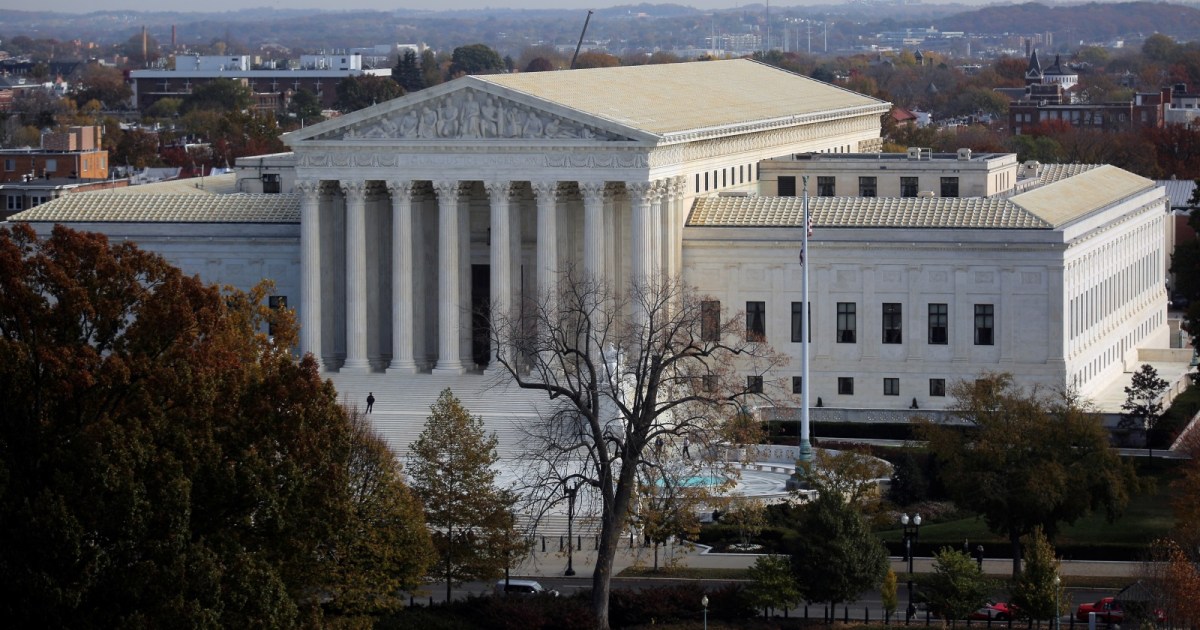Despite the incomplete results in a number of swing states that may decide the outcome of the US presidential election, President Donald Trump announced his victory over his Democratic opponent, Joe Biden, on Wednesday.
The premature announcement underscores concerns that Democrats have been voicing for weeks as they say Trump may seek to challenge the election results.
This could lead to legal and political drama in which the presidency can be determined by a mixture of courts, state politicians, and Congress.
Here are some "chaotic" scenarios that could occur:
Lawsuits
Early voting data shows Democrats are voting by mail in much greater numbers than Republicans.
And in states like Pennsylvania and Wisconsin, which do not mail ballots until Election Day, experts say the initial results may favor Trump, while the slower postcards that are counted are expected to favor Biden.
Democrats expressed concern that Trump would declare his victory, as he did on Wednesday, before those votes were counted.
The convergence of results could lead to litigation over voting and vote counting procedures in crucial states.
Cases filed in individual states or some of them could eventually reach the Supreme Court, as happened in the Florida election in 2000, when Republican George W. Bush beat Democrat Al Gore by just 537 votes in Florida after the Supreme Court halted the reinstatement process. Screening.
Trump appointed Judge Amy Connie Barrett to the Supreme Court days before the election, which would achieve a conservative majority of six to three that could be in the president's favor if the courts hear election disputes.
"We want to use the law properly. So we're going to the Supreme Court," Trump said on Wednesday.
US state election laws provide for all votes to be counted, and many states often spend days to complete the vote count.
The Electoral
College does not elect the President of the United States by a majority of the popular vote;
Under the constitution, the candidate who wins the majority of the 538 electoral college votes becomes the country's next president.
In 2016, Trump lost the popular vote to Democrat Hillary Clinton but won 304 electoral college votes to 227.
Typically, a candidate who wins the popular vote in each state wins that state's votes in the Electoral College.
Assembly members meet on December 14th to cast their votes.
Both houses of Congress meet on January 6 to count the votes and announce the winner.
Usually, state governors certify results in their state and share information with Congress.
But some academics have defined a scenario in which the governor and the legislature in a state experiencing closely-knit rivalry present two different outcomes.
Critical states like Pennsylvania, Michigan, Wisconsin and North Carolina have Democratic governors and legislatures dominated by Republicans.
According to legal experts, it is unclear in this scenario whether Congress should accept the results presented by the governor or not count the state's electoral votes at all.
While most experts see this scenario as unlikely, there is a historical precedent.
The Republican-controlled Florida legislature was considering presenting its findings in 2000 before the Supreme Court ended the Bush-Gore dispute.
Emergency elections
If it is decided that none of the candidates will obtain the majority of votes in the Electoral College, this would lead to "emergency elections" under the Twelfth Amendment to the Constitution.
This means that the House of Representatives will choose the next president, while the Senate will choose the vice president.
Emergency elections are also held in the event of a tie, with each candidate obtaining 269 votes after the elections.
There are several possible paths that could deadlock the elections in 2020.
Any electoral dispute in Congress will end before the deadline of January 20, when the constitution provides for the termination of the incumbent president.
Under the Presidential Succession Act, if Congress does not announce the winner of the presidential or vice presidential position by then, the speaker of the House will be the acting president, and that position is currently held by Democrat Nancy Pelosi.

